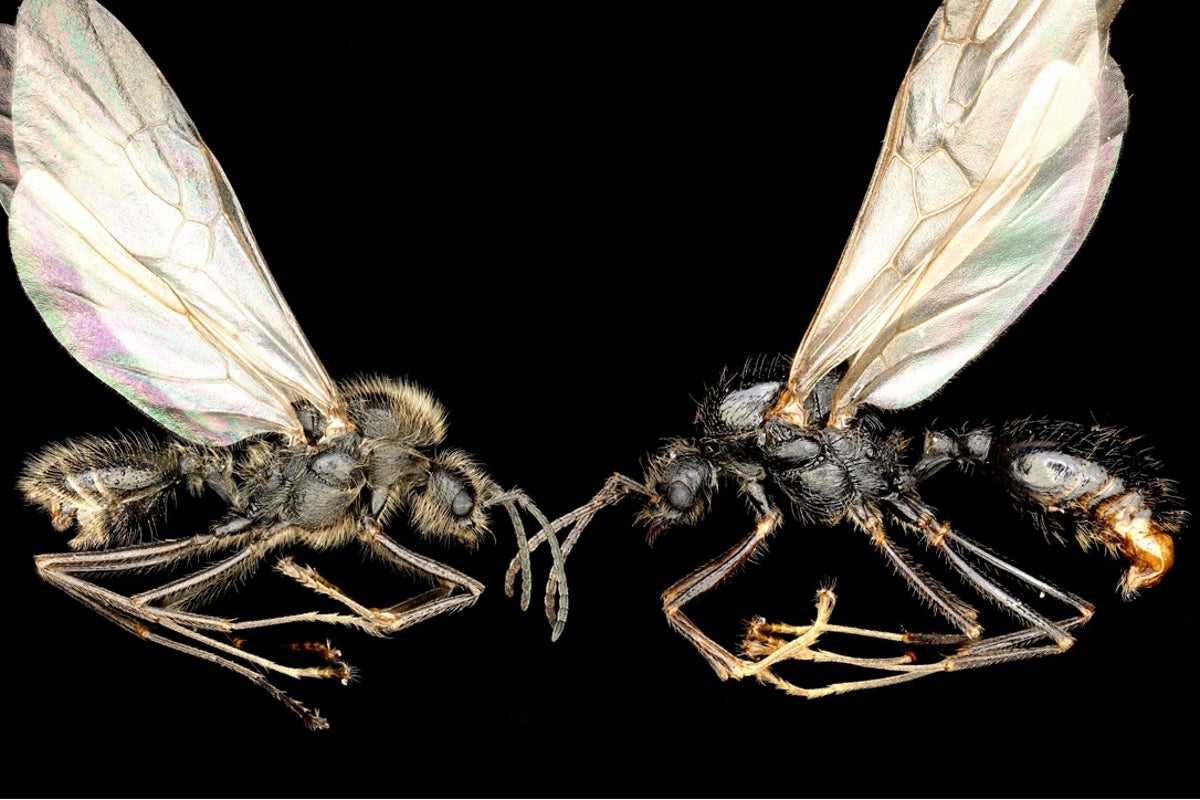
"These queen Iberian harvester ants (Messor ibericus) are sexual parasites that rely on the sperm of males of the ant species Messor structor. They use this sperm to breed an army of robust worker ants, which are hybrids of the two species. Data now show that, in the absence of nearby M. structor colonies, M. ibericus queens can clone male M. structor ants by laying eggs that contain only M. structor DNA in their nuclei."
"Iberian harvester ants co-exist with M. structor in some parts of Europe, which has historically given M. ibericus queens an abundant supply of M. structor males to mate with. But evolutionary biologist Jonathan Romiguier at the Institute of Evolutionary Science of Montpellier in France and his colleagues noticed something strange on the Italian island of Sicily: they found Iberian harvester ants everywhere but not a single colony of M. structor."
"When the researchers peered inside colonies of the Iberian harvester ant, they found two types of ant that looked very different. Genetic analyses confirmed that the colonies contained both M. ibericus and M. structor, despite the lack of M. structor populations on the island. Further analyses solved the mystery: Iberian harvester queens clone M. structor ants to maintain a supply of their sperm."
Iberian harvester ant queens (Messor ibericus) rely on sperm from males of a different species, Messor structor, to produce hybrid worker ants. On Sicily, colonies lacked native M. structor populations yet still contained M. structor genetic material. Genetic analyses revealed that M. ibericus queens clonally produce male M. structor by laying eggs whose nuclei contain only M. structor DNA, effectively creating males identical to M. structor to mate with. The queens then use the sperm from those cloned males to fertilize eggs that develop into hybrid workers, maintaining colony function despite absence of external M. structor males.
Read at www.nature.com
Unable to calculate read time
Collection
[
|
...
]